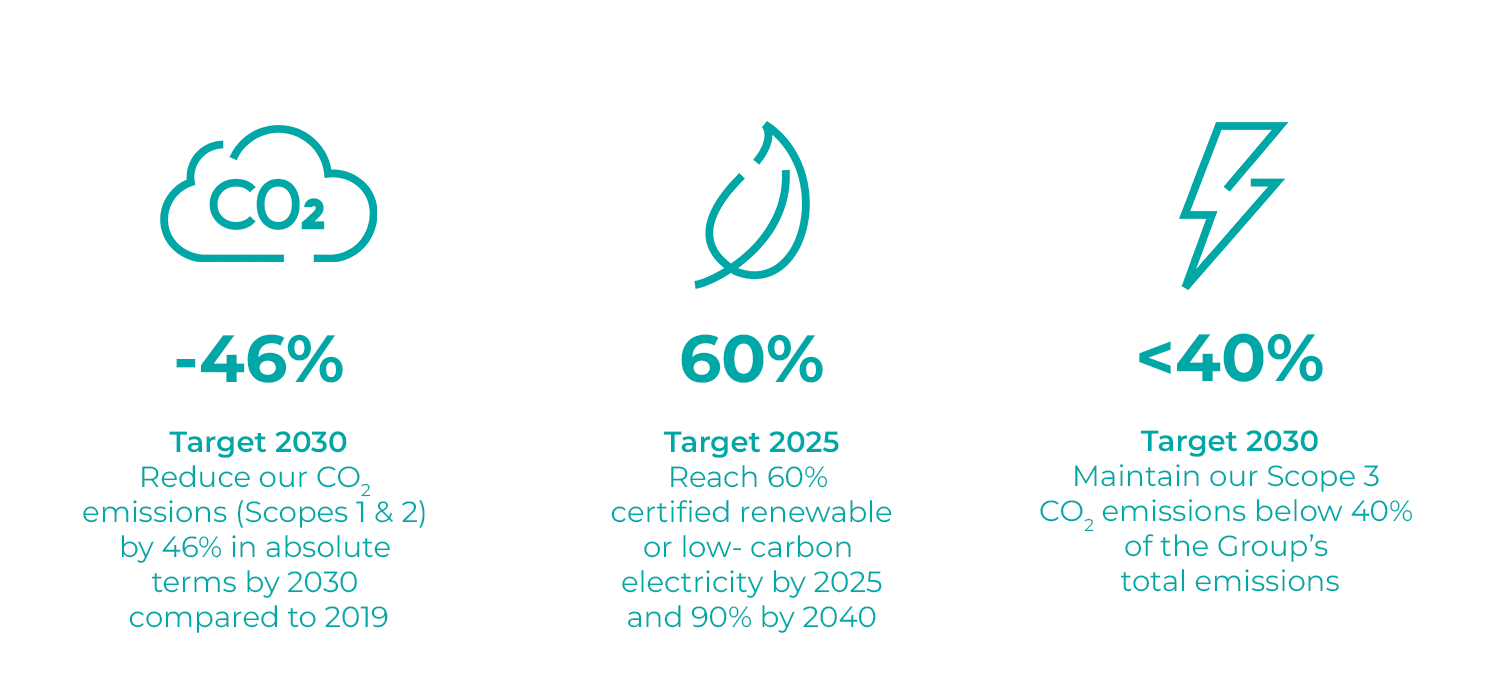Decarbonising our activities
While a circular economy is at the heart of Verallia’s activities, making it possible to take advantage of glass’ infinite recyclability, recycled materials must still be melted in order to be converted into bottles or jars. Today, this operation remains a major source of CO2 emissions for our business.
Verallia has embarked on an ambitious investment policy to transform the technologies, resources, and industrial equipment used on its sites, with the intent of drastically reducing its emissions. This desire has been acknowledged through the validation from SBTi (Science Based Target initiative) in March 2022 for the 1.5°C trajectory. In parallel, Verallia is pursuing soil regeneration projects by planting trees in collaboration with PUR Project (see Section 2.2.3) and Reforest’Action. The goal of all these actions is to enable Verallia to see its ambition of reaching Net Zero through by 2050.

Our actions to decarbonise our activities
- Increaing the proportion of low-carbon raw materials
- Optimise energy consumption and develop low-carbon furnaces
- Increase renewable and low-carbon energies
- Reduce our Scope 3 emissions
- Contribute to soil regeneration